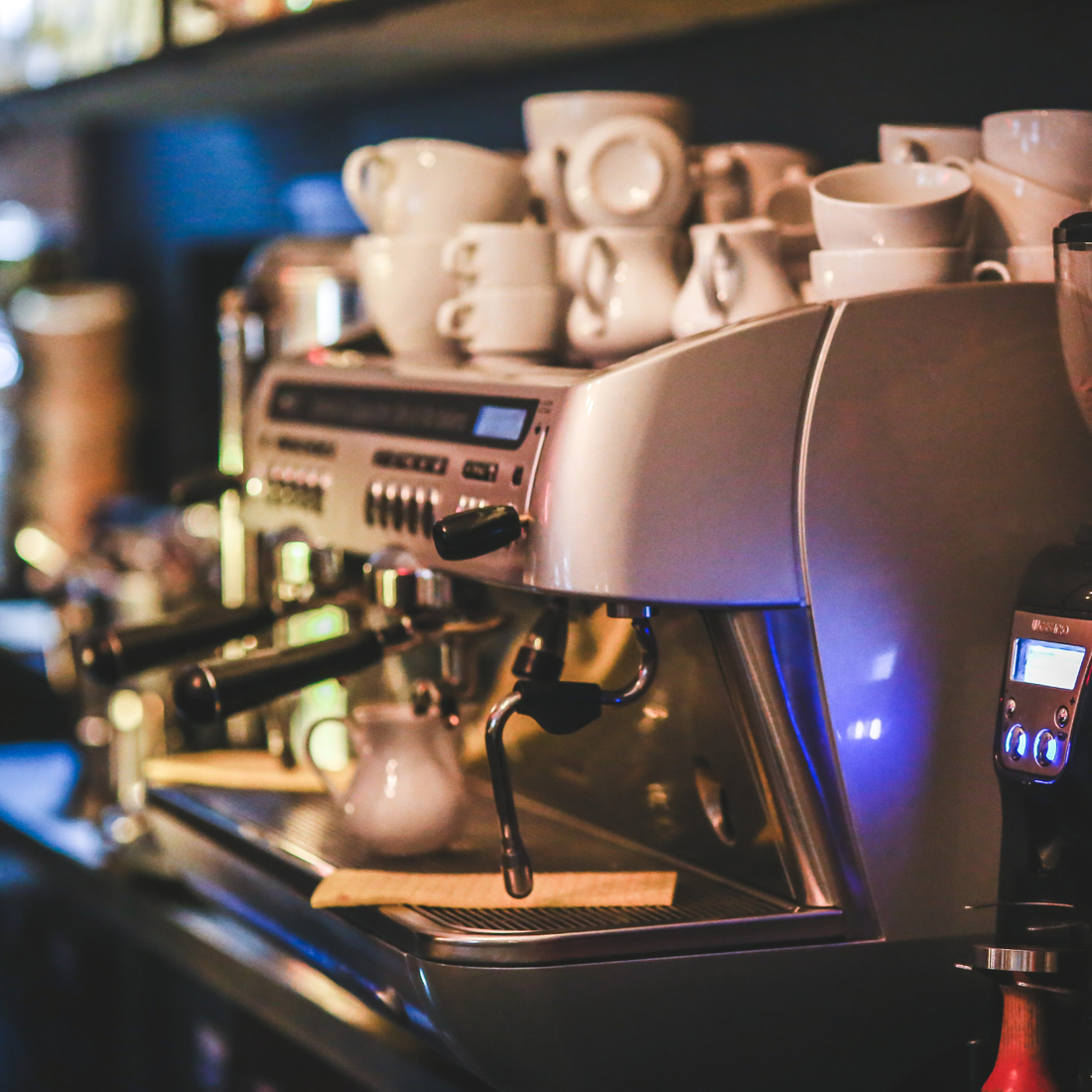
Choosing the Right Commercial Coffee Machine: A Smart Guide
Share
The Importance of Choosing the Right Commercial Coffee Machine is huge when It Comes to furnishing your café, office, or hospitality venue. The commercial coffee machine is more than a product, it’s an investment. If you’re weighing your options, here’s how to make the right decision.
1. Pick the Machine Type for Your Business
Bean-to-Cup Machines
These fully automatic machines are the ultimate option for many workplaces and hospitality businesses. Why? They grind fresh beans for each cup, lock in the aroma, and ensure every drink tastes the same. Whether it’s a cappuccino or a latte, you just press a button. They’re great for busy, self-service environments where time and consistency are essential. Think modern offices, hotel lobbies, and conference centres where you want to minimise staff intervention.
Pros:
- Fresh beans for each cup
- Simple barista-style drinks with a single touch
- Energy-efficient with auto-cleaning
Cons:
- Higher cost up-front
- Daily cleaning required
Traditional Espresso Machines
These workhorses are best known to speciality cafés and coffee bars. You can get them in manual, semi-auto, and fully auto varieties. They deliver the best coffee quality, especially when paired with highly trained baristas. Traditional espresso machines come with steam wands and multiple group heads to handle high volumes.
Pros:
- Total control and extraction for the best coffee
- Durable build with dual boilers and the best steam frothing
- Flexible, offers the full drink menu
Cons:
- Needs expert staff
- Higher cost, upfront and ongoing training
Instant Coffee Machines
These machines are the simplest and fastest to operate. They use pre-measured sachets of soluble coffee, meaning they’re cheap and easy to maintain. The trade-off? Lower quality. If you’re after convenience and cost-effectiveness, these machines are great for staff rooms or budget-conscious businesses.
Pros:
- Fast and reliable cups with minimal mess
- Low cost per cup
Cons:
- Lower taste
- Limited menu options
2. Determine Your Operating Environment
Choosing a machine type is only the beginning. Here are the key considerations:
Volume & Use-Cases
Estimate your daily cup count. Offices with up to 50 staff might need a bean-to-cup machine supporting around 100 cups/day, while cafés require multi-head espresso machines for faster delivery. High-volume sites may also consider filter coffee machines for large batches.
User Expertise
Self-service setups (offices, receptions) benefit from fully automated machines. Professional cafés can invest in manual espresso setups and invest in staff training.
Drink Menu Complexity
For tea, speciality coffees, hot chocolate, or custom drinks, bean-to-cup or traditional machines are ideal. Instant machines offer a narrower selection.
Budgeting
Commercial machines range from roughly £1,500 to £25,000 depending on capacity and features. Leasing is available, enabling access to premium machines without capital expenditure.
Space & Maintenance
Evaluate kitchen layout for space, power, water supply, and ventilation. Bean-to-cup models often include self-cleaning cycles, while espresso machines need manual back flushing and wand cleaning.
Durability & Support Infrastructure
Look for stainless steel build, dual boilers, temperature stability, and reliable vendor support. Built-in grinders and water filtration enhance quality and consistency.
3. Weigh Up Your Business’s Needs
To help you decide which type of commercial coffee machine works best for your business, let’s break down the pros and cons in simple terms. Bean-to-cup machines are user-friendly and ideal for spaces where convenience and consistency are important. They’re perfect for offices or hotel spaces, making them great if you want little staff involvement. They make a variety of drinks, espressos, lattes, and cappuccinos, and with little effort. Drink quality is high, and some machines include self-cleaning features. The downside? They tend to be a higher upfront cost.
Traditional espresso machines are the best option for coffee shops and cafés. They can be used to make a range of drinks at top quality, especially when operated by a trained barista. They can also handle high volumes of drinks during busy hours. However, they need trained baristas, daily cleaning, and represent a significant investment of time and money.
Instant coffee machines are the simplest and fastest option. They’re best for staff rooms or low-cost spaces where time and ease of use are valued. They make black or white coffee in a flash and require little maintenance. They may not be as complex or as high quality as the other two options.
By understanding these distinctions, you can find the right machine for your priorities, whether that’s delivering barista-style drinks, serving high volumes quickly, or keeping it as simple and affordable as possible.
4. Let’s Compare the Strengths and Distinctions of Three Leading Brands
Bestir
- Known for all-in-one bean-to-cup machines, such as the “Bestir BM” series
- Good user interfaces with touchscreens and bean hopper options
- Perfect for medium-demand spaces with customisation options
Iberital
- Specialised in professional-grade traditional espresso machines
- Offers machine lines with PID temperature control, pressure gauges, multi-group heads, and robust thermal systems
- Suitable for high-end cafés that demand consistency and precision
Bravilor
- Known for reliable bean-to-cup and instant machines (such as work-oriented machines)
- Focussed on durability and ease of use
- Often the choice for offices that value performance and low maintenance
5. Some Final Tips Before You Buy
Clarify Your Priorities
Is it volume, quality, or convenience? Let that guide your decision.
Try It First
Ask for a demo, trial, or tasting session. Most suppliers offer on-site coffee tasting.
Support Contracts Matter
Regular maintenance and easy access to parts and service can save money in the long run.
Plan for Long-Term Costs
machine depreciation, consumables, service fees, and cleaning supplies.
Think Sustainability
Consider energy-saving features (eco-modes, low standby), water filtration, and recyclable packaging or coffee pods.
Conclusion
The decision to purchase a commercial coffee machine comes down to balancing user experience, drink quality, operation, and total cost. Here’s what works best for the most common business environments:
Modern Offices & Lounges → Bestir or Bravilor bean-to-cup machines
Speciality Cafés & Restaurants → Iberital traditional espresso systems
Budget Staff Areas → Bravilor or instant coffee machines
By pairing machine type, brand strengths, and your business’s volume and staffing capabilities, you’ll make the right investment and deliver coffee that counts, cup after cup.
